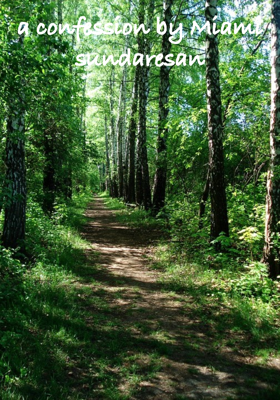Sawm through evolution...
Sawm through evolution...


Mumtaj carefully arranged the food on the table, her hands moving with practiced ease as the aroma of freshly cooked biryani and dates filled the air. It was almost time for Iftar, and the family would soon gather to break their fast. The house was a bustling one, located in Nidur, a small town near Mayiladuthurai, where life moved at a slower pace, but the bonds of family and faith were strong.
In the background, the distant hum of evening prayers could be heard from the local mosque. The sky outside had begun to darken, casting a deep orange hue over the fields surrounding their home. Ibrahim, Mumtaj' husband entered the room, his face showing the contentment instead of weariness of a long day of fasting.
Their home was a lively one, filled with the chatter of their children and extended family. Zahir, their college-going son, sat in the corner, flipping through his phone, while Noorjahan, their daughter, was in the next room, helping her cousins Saira and Laila set up the drinks. Adil, Ibrahim’s elder brother, sat nearby with his wife Rahila, discussing the day’s events.
As the call to prayer neared, Ibrahim looked at his family, thinking about the deeper meaning behind their fasting. He had often pondered why it seemed so natural to them, despite the physical challenges. He couldn't help but wonder if there was more to the practice of 'Sawm' than simply following the faith.
Just then, the door creaked open, and in walked Dr. Fathima, a close family friend and an expert in psychology. She had joined them for Iftar many times over the years and was known for her quiet wisdom. Tonight, however, the conversation would lead somewhere unexpected.
Mumtaj greeted her with a warm smile, offering her a seat at the table. “You came just in time,” she said, setting down the final bowl of dates. “We were just about to break our fast.”
As everyone gathered, Ibrahim’s mind was still swirling with questions, and he finally voiced them aloud. “Fathima, I’ve been thinking about something. Fasting during Ramadan, it’s always a challenge, but each year we seem to handle it better. Do you think it’s more than just discipline? Why does it feel so… natural?”
Fathima paused, taking in the question, and smiled softly. “Ibrahim, you’re asking a very deep question. There’s more to fasting than what we see on the surface. It’s not just about faith or practice; it taps into something ancient within us.”
Adil, intrigued, leaned forward. “Ancient? What do you mean by that?”
Fathima looked around the room, at the faces of the family waiting for her to continue. “Think about it—our ancestors, long before they practiced Ramadan, didn’t have food readily available. They had to endure long periods without eating, and their bodies adapted to survive those times. Fasting wasn’t a choice, it was a necessity.”
Noorjahan, always curious, chimed in. “So, are you saying we’re built to handle fasting?”
Fathima nodded. “Yes, in many ways. Our bodies have evolved to cope with periods of scarcity. When we fast, we’re not just engaging in an act of devotion; we’re tapping into an ancient survival mechanism. That’s why, despite the hunger, we can still stay focused, alert, and even feel a sense of clarity.”
Saira, who had been quietly listening, asked, “But why do we feel more focused during fasting? I’ve noticed I can concentrate better during Ramadan.”
Fathima smiled at the insightful question. “In times of scarcity, being distracted or sluggish would have been dangerous. You had to be alert, smart, and resourceful. When food was scarce, your survival depended on your ability to stay focused and find food. That’s why today, when we fast, we feel more aware. It’s an ancient survival mechanism at play. Our bodies are designed to conserve energy and heighten our awareness when we’re not eating.”
Zahir, who had been half-listening, now leaned in with interest. “So fasting is almost like a tool our ancestors used to survive?”
“Exactly,” Fathima replied. “When Prophet Muhammad - Peace Be Upon Him - advised 'Sawm', he wasn’t just recommending it for its spiritual benefits, but he was also aware of the deeper, evolutionary psychology behind it. Fasting aligns with our natural abilities as humans, making it a practice that not only nourishes the soul but also connects us to an ancient way of life.”
Rahila, intrigued by this new perspective, said, “So fasting is not just something we do for our faith, but it’s also something that our bodies are prepared for?”
Fathima smiled. “Yes, when we fast, we’re working in harmony with our biology. Over thousands of years, humans have learned how to manage periods without food. Our bodies are equipped to handle it, and that’s why we feel capable of enduring the challenges of Ramadan.”
As the call to prayer echoed through Nidur, signaling the end of the day’s fast, the family shared a moment of quiet reflection. The food before them symbolized not only their devotion but their resilience—both as individuals of faith and as descendants of those who had learned to survive through adaptation and perseverance.
As they began to eat, the conversation lingered in the air, like the warm summer breeze. Ibrahim glanced at Mumtaj and their children, feeling a deep connection to not only their spiritual journey but to the long, unbroken line of human history that had brought them to this moment.
































































